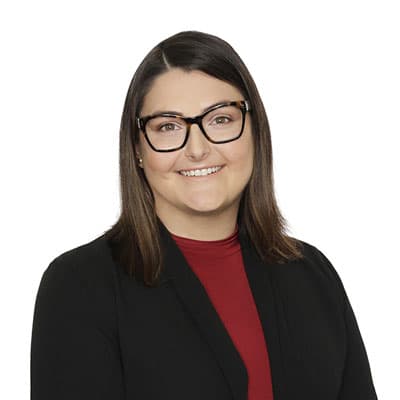Cumulative Licence Disqualifications (Qld)
When a defendant commits certain traffic offences in Queensland, the court may be required to impose cumulative periods of disqualification from driving, rather than a concurrent disqualification. This means that the disqualification periods imposed for different offences will run after one another, instead of running concurrently (at the same time). This article outlines when cumulative licence disqualifications will be imposed for traffic offences in Queensland.
In mid-May 2008, the Queensland government passed laws which aimed to improve road safety and provide an extra deterrent from committing dangerous traffic offences. This was due to community demands for tougher rules as fatalities on the roads were increasing significantly. It was recognised that being under the influence of intoxicating substances such as alcohol and drugs significantly increased the likelihood of road crashes and there was, therefore, a need to keep dangerous drivers off the road for longer periods. The idea was to strengthen the deterrent effect of a license disqualification.
Which offences attract cumulative licence disqualifications?
Cumulative licence disqualifications apply to the following driving offences:
- Drink driving;
- Drug driving;
- Dangerous operation of a motor vehicle whilst adversely affected;
- Driving while immediately suspended (following a mid or high range drink driving charge);
- Driving while disqualified by a court order;
- Driving outside the conditions of a s87 work/restricted licence;
- Supervising a learner driver while your blood alcohol level is over 0.05.
Cumulative disqualifications are automatic. The Magistrate does not have discretion.
If a person is charged with two or more of the above offences at the same time, the court will impose a disqualification period for each offence separately. One disqualification period will then expire before the next period commences.
Example 1
Barry had his license disqualified on 25 December 2020 for 1 month because he drove while his licence was suspended due to non-payment of fines. His license was suspended by SPER.
On 10 January 2021, Barry drove home after having 2 beers with his mates after work and was intercepted by police. He registered a reading on 0.061% and was charged with low range drink driving. He was also charged with disqualified driving.
He went to court on 11 February 2021 and pleaded guilty to both charges. The court ordered that he be disqualified for 2 years for disqualified driving and 2 months for drink driving. Barry will not be able to get his licence back until 11 April 2023 (a total of 26 months).
If you are charged with one of the above offences while your licence is already suspended or disqualified, the new disqualification period ordered by the court will not start until after the end of your current disqualification period.
Example 2
Jane was charged with drink driving on 2 May 2019. She attended court on 1 June 2019 and was disqualified for 8 months. On 10 June 2019, she was charged with a further drink driving offence and driving while disqualified.
Jane was disqualified for 10 months for the drinking driving offence and 2 years for the disqualified driving offence. She will not be able to get her licence back until 1 December 2022 (8 months + 10 months + 2years)
Reapply for licence after the cumulative licence disqualification
Once a person has completed their disqualification period, they need to apply for a license again by completing the necessary forms, proving their identity by producing an 18 plus card or birth certificate and paying the associated fees at Queensland Transport.
There may also be a need to install an interlock device if the offence which triggered the disqualification period is a certain offence including;
- driving under the influence of alcohol (more than 0.15%);
- failing to provide a blood/breath specimen;
- dangerous driving while adversely affected;
- 2 or more drink driving offences of any kind within a 5-year period.
What is an alcohol ignition interlock?
An alcohol ignition interlock is a device connected to a vehicle’s ignition. The driver needs to blow into the device, and it will register whether any alcohol is detected in their breath. If alcohol is detected, they will be prevented from starting the vehicle. If they register a 0.00% reading they will be able to start the ignition and drive.
A person’s alcohol ignition interlock period will be:
- 2 years if it is applied before 10 September 2021
- 5 years if it is applied on or after 10 September 2021.
In order to comply with the program, a person needs to;
- Apply for a license;
- Contact an interlock provider and have the device installed. The following companies are approved providers;
Draeger Australia Pty Ltd
Phone: 1300 780 689
Email: [email protected]
Guardian Interlock Systems
Phone: 1300 881 005
Email: [email protected]
- Nominate their vehicle
In limited situations, a person may apply to the Department of Transport and Main Roads for an exemption from the interlock program. There are strict criteria that need to be met to be eligible for an exemption. This includes the following;
- The person lives more than 150km from an approved installer
- They live on an island that is not connected to the mainland by a bridge
- They have a medical condition
- There are severe hardship grounds that amount to extenuating circumstances.
The exemption needs to be made in the approved form up to 6 weeks before the disqualification period expires.
If you require legal advice or representation in any legal matter please contact Armstrong Legal.

This article was written by Natasha Shorter - Managing Associate - Brisbane
Natasha Shorter completed a double degree in Law and Criminology and Criminal Justice at Griffith University graduating with Honours. She was admitted to practice in the Queensland Supreme Court in September 2008. Natasha is a Managing Associate practicing in criminal law. She has a real passion for social justice and protecting people’s rights, a quality that makes her a proficient...

